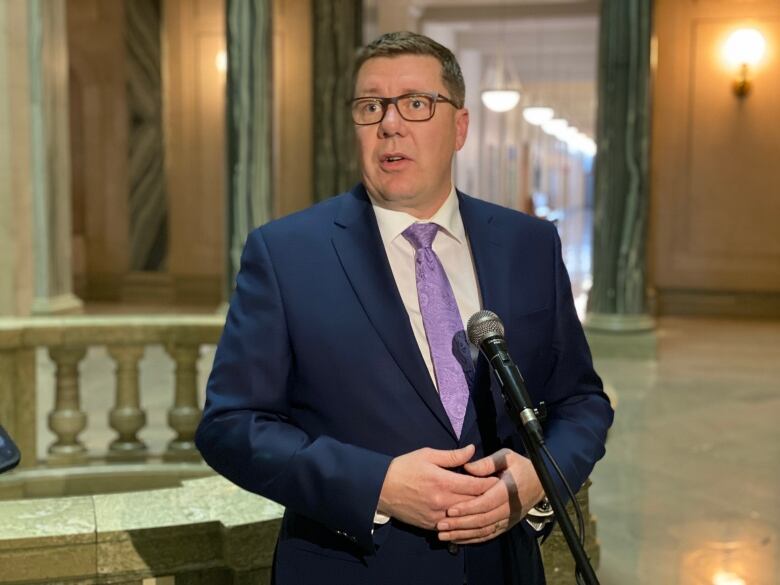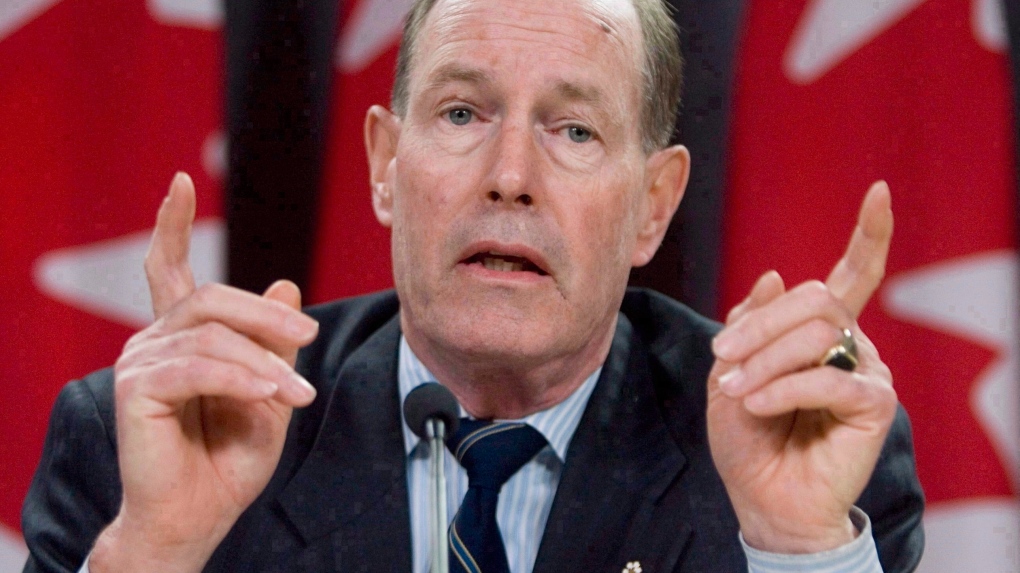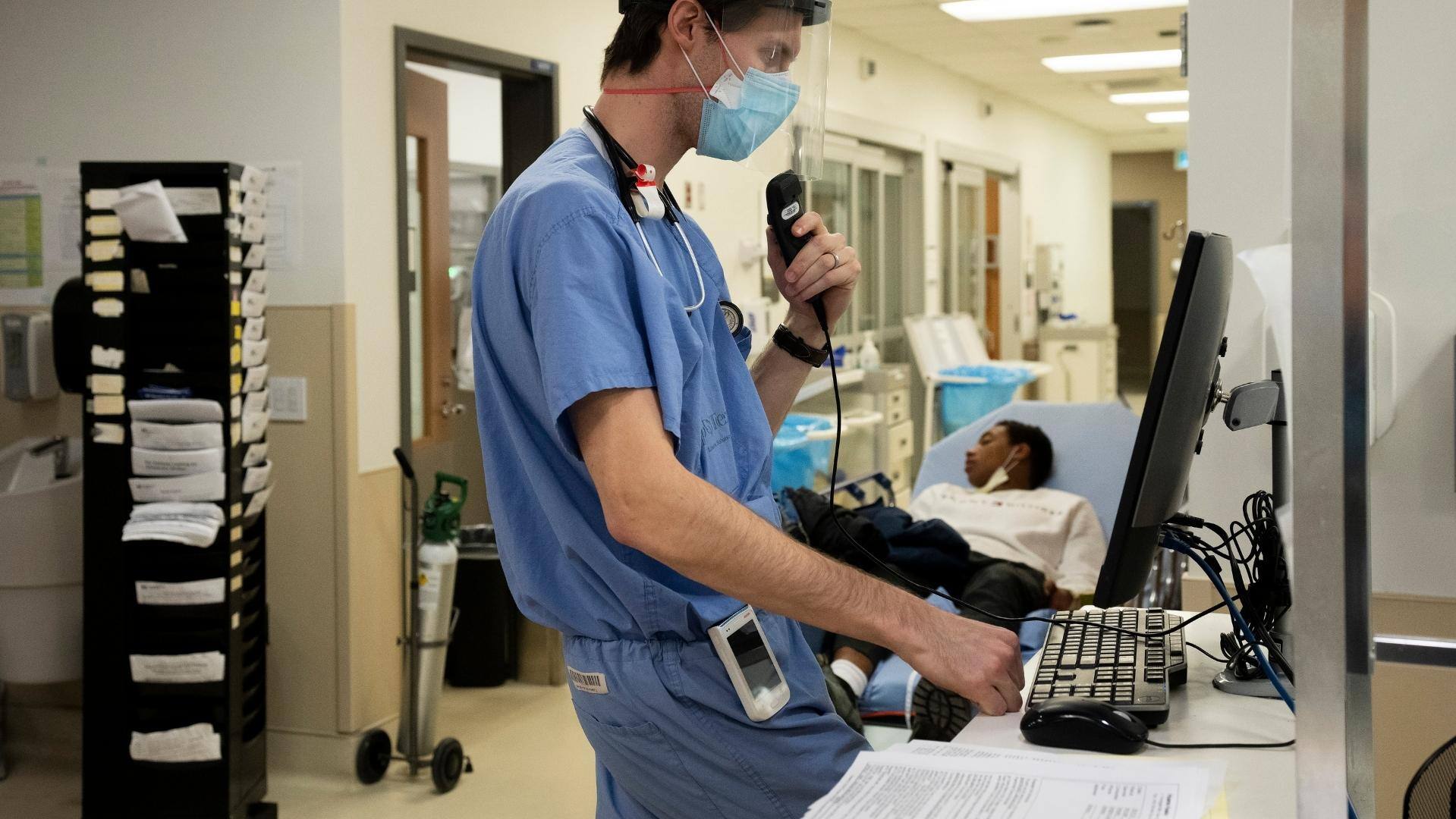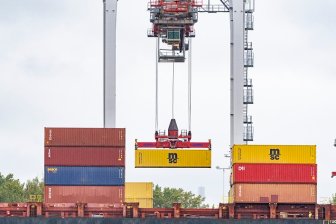News
What to watch for as Canada's premiers meet in Victoria – CBC News
It’s been three years since what used to be a staple of the political calendar — the annual summer premiers’ gathering — was held in person.
As the Council of the Federation reconvenes, Canada’s premiers are packing a lot of familiar baggage, particularly when it comes to their demands of the federal government.
After meeting frequently — sometimes weekly or biweekly — earlier in the pandemic, the premiers now feel “ghosted” by Ottawa, B.C. Premier John Horgan, the chair and host of this year’s gathering, told CBC Radio’s The House on the weekend.
It’s unclear what might be delivered between now and Tuesday night, since only one side of the federal-provincial table is gathering in Victoria. Nevertheless, here’s what’s on premiers’ minds.
Health care
It was already the biggest expenditure in premiers’ budgets and an oft-cited top priority for voters. Then COVID-19 put unprecedented stress on health infrastructure that advocates warned wasn’t up to code even before the pandemic.
“When you look at our health-care system compared to other, comparable countries, it’s been deteriorating in terms of the quality of care and the timeliness of care over a long period of time,” Canadian Medical Association president Katharine Smart told CBC’s The Current last week. “That’s not only about dollars. That’s about failing to modernize the system.”
WATCH | Needs of Canadians outpacing heath-care system, CMA president says
In many ways, Canada’s health-care system has not been modernized since the 1960s, says Canadian Medical Association president Dr. Katharine Smart. She’s urging Canada’s premiers to address these ‘structural issues’ at their annual meeting in Victoria this week.
Still, it’s the dollars premiers were talking about before travelling to Victoria. They reminded Canadians, yet again, that the federal share of health-care spending (22 per cent, they calculate) is nowhere near where it used to be (35 per cent) or needs to be (as much as the 50 per cent it once was, as Alberta’s Jason Kenney and Manitoba’s Heather Stefanson have told us).
So they’re asking Ottawa, yet again, to sit down and negotiate larger Canada Health Transfer payments.
WATCH | More health care funding is a key demand for provincial premiers:
Canada’s premiers are set to meet this week for the first time in person since 2019. Health care is expected to be one of the top items on the agenda, with hospitals in parts of the country struggling with major staffing shortages.
It’s not that Justin Trudeau’s Liberal government doesn’t agree that more health-care funding is necessary, although officials take issue with the 22 per cent calculation, arguing the premiers’ math ignores their revenue from federal tax points transferred to the provinces since 1997.
While both sides call for a more “adult conversation” on health-care funding in place of a “sterile” debate on percentages that now resembles a stalemate, the premiers’ request last fall for an urgent first ministers’ meeting on health care was rebuffed.
Why? Provincial elections in Ontario (this spring) and soon, Quebec (this fall), apparently made for difficult political timing in Ottawa’s eyes, even though last winter’s supply and confidence agreement with the federal NDP has presumably given Trudeau’s Liberals more space to work something out without fear of a writ period of their own.
As chair, Horgan (a New Democrat) along with Newfoundland and Labrador Premier Andrew Furey (a Liberal) and Saskatchewan Premier Scott Moe (representing more conservative premiers), have been trying to engage Trudeau in what they say is a non-partisan way. But it hasn’t worked.
“As the kids say, we’ve been ghosted by the federal government,” Horgan said. “I know the prime minister is committed to this, but it’s a matter of timing and tick-tock goes the clock, as far as I’m concerned.”
Federal Health Minister Jean-Yves Duclos announced $2 billion to help with surgical backlogs last March. But last spring’s federal budget didn’t have a large, permanent and non-specific boost to health transfers on its short-term horizon.
In Ottawa’s defence, some provinces have sparked skepticism that additional federal health transfers would be used for their intended purposes. Last month, Alberta’s auditor general found it couldn’t properly account for how billions in COVID funding was spent. Ontario’s Financial Accountability Office reported last fall that Doug Ford’s government didn’t immediately spend billions transferred for urgent COVID needs. New Brunswick used federal COVID transfers to pad its provincial surplus.
Horgan seems to understand that repeating another request for unconditional transfers would be a non-starter.
“This is not about blank cheques, this is not about no-strings-attached,” he told The House. “We need to work on what those accountability mechanisms will be.”
Beyond funding, it’s unclear whether any other kinds of health-care innovations are on the agenda in Victoria.
Smart, for example, has argued for national, not provincial, licensing for health-care professionals, to improve interprovincial mobility for a workforce desperately in demand and making it easier to scale up virtual health-care delivery across jurisdictions. Premiers like Horgan aren’t keen, arguing that their provincial budgets funded the training of these professionals and they can’t risk losing them if licensing barriers are removed.
Pharmacare
Prescription drug expenditures are a major component of health-care costs, but they’ve been broken off into a separate political conversation.
At past summer premiers’ meetings, agreements were hammered out to collaborate on bulk purchasing of medicines to wrestle these costs down. That work continues.
But more recently, pharmacare has become a federal file, with the Trudeau government first appointing a former Ontario health minister to study how a national drug plan could be implemented and the federal NDP demanding serious progress toward this goal as a condition for its ongoing support in the House of Commons.
If a federal universal drug insurance plan ever came to fruition, it could not only allow for more equal coverage for Canadians no matter where they live, but also let provinces that already provide a lot of provincial drug coverage to reallocate that money in their respective health budgets. So why aren’t all the premiers leaning in?
Similar to the $10-a-day federal child-care proposal, it could help each jurisdiction, but differently, based on what they already offer. Because of these potential redundancies, implementing what may seem like a simple idea becomes complex.
Interprovincial trade barriers
This past Canada Day marked five years since the country’s interprovincial “free trade” deal took effect. So why do business groups still complain about interprovincial barriers costing Canada billions in lost productivity and economic growth?
In its recent report card, the Canadian Federation of Independent Businesses found a lot of work remains, with many “F” grades awarded for a lack of progress on specific barriers, like mutual recognition of credentials or the harmonization of business regulations and registrations.
Freer trade can help lower the cost of living and make lives better in a very real way.<br><br>Next week in Victoria, I will be calling on my fellow Premiers to get serious about cutting costs, creating jobs by making Canada an economic union. <a href=”https://t.co/FhFZEKFz38″>pic.twitter.com/FhFZEKFz38</a>
—@jkenney
Past summer premiers’ meetings have featured specific headline-grabbing but incremental announcements about “freeing the beer” or “freeing the grapes” (wine), notwithstanding a 2018 Supreme Court decision that allows provinces to continue to restrict interprovincial alcohol trade.
Some premiers have liberalized a lot, and others might be willing to liberalize more, but there’s never been unanimity around the table, particularly among premiers who represent remote Northern communities with high rates of alcohol-related health and social challenges.
Sovereignty, Part 1: immigration
In a scrum with reporters last week, Scott Moe openly mused about the need for Saskatchewan to “use up the full scope of autonomy that we have” and follow Quebec’s lead in seeking more powers to regulate immigration. Moe argued that he needs more newcomers to pursue the economic growth agenda he wants for his province in this tight labour market.


By week’s end, Ontario Premier Doug Ford was also talking about “historic labour shortages,” with his labour minister saying thousands of jobs go unfilled and that it’s urgent for the business community to add more skilled workers in particular. Federal immigration allocations are inadequate, Ontario is arguing, so it needs to be free to do something about it.
Could Quebec Premier François Legault offer some tips in Victoria for seeking more independence? Maybe, but the federal government may be reluctant to enable it. Less restrictive immigration policies could exacerbate inequities: it could be hard for less-popular regions to attract skilled workers and investors if wealthier provinces fling open their doors.
Sovereignty, Part 2: energy
Moe also told reporters he wants to focus on energy security this week.
The war in Ukraine has disrupted global markets and created new demand for not only Canadian oil and gas exports, but uranium and other critical minerals.
Framing this economic opportunity in “energy security” terms also counters the federal government’s climate change objective of gradually weaning Canada off its dependence on fossil fuel exports and keeping its international commitments to cut carbon emissions.
The Alberta government issued a press release Thursday touting how all nine provinces have signed on as intervenors in the upcoming Supreme Court case on the constitutionality of C-69, which Jason Kenney’s government has dubbed the “No More Pipelines Act” for what it says are changes to the federal impact assessment process that threaten the future of Alberta’s economy.
Just like the recent provincial challenge to the federal carbon tax, the Alberta Court of Appeal found C-69 unconstitutional, but legal experts aren’t sure the Supreme Court will agree. In the meantime, this latest legal fight appears to have united the premiers on the need to push back.
New faces, lame ducks and powerful incumbents
This year’s talks will feature new faces, like Nova Scotia’s Tim Houston and Manitoba’s Stefanson. The former is coming up on his first anniversary in office, and the latter will find out next year if voters want to keep her party in power.
Doug Ford may return to the table with some swagger after winning another majority in Ontario last month. Legault, who posed with Ford for the cameras on Sunday night, is tracking toward a potentially even more resounding re-election this fall.
This week will be a swan song for not only chair Horgan, who has announced he won’t run again, but fellow lame-duck Premier Kenney, whose party showed him the door in May.
After a period of suits-only visuals, the premiers’ annual photo call will include a couple of women again: not only Stefanson, but Caroline Cochrane from the Northwest Territories.
Talks begin Monday morning as they have in the past — hearing from representatives of Canada’s national Indigenous organizations.
The Assembly of First Nations will be represented by its B.C. regional chief, Terry Teegee, while Elmer St. Pierre, national chief of the Congress of Aboriginal Peoples, will also attend. Inuit Tapiriit Kanatami will not be present this year, but Métis National Council President Cassidy Caron will attend, as well as a regional representative of the Native Women’s Association of Canada.
News
Federal budget will include tax hike for wealthy Canadians, sources say – CBC News
Tuesday’s federal budget will include a tax increase on the richest Canadians, sources tell Radio-Canada.
It’s not clear exactly what form the tax measure will take but senior Liberal sources have told Radio-Canada that it will affect less than 1 per cent of Canadians.
Prime Minister Justin Trudeau and his ministers have been on a countrywide tour in recent weeks to make a series of pre-budget announcements.
Those announcements add up to more than $38 billion in commitments over a number of years. Because $17 billion of those commitments involve loan-based programs, about $21 billion could hit the government’s bottom line directly.
Since much of the spending side of the budget is already public, the focus on tomorrow’s budget likely will turn to how the government intends to pay for the new programs.
Finance Minister Chrystia Freeland has ruled out tax increases on the middle class.
“We remain absolutely committed to being there for hardworking middle-class Canadians, and then we won’t raise taxes on them,” she said last week.
On the eve of Tuesday’s federal budget, sources have told Radio-Canada that it will include a tax increase for wealthy Canadians. It’s not clear what it will exactly be, but senior Liberal sources say it will affect less than one per cent of Canadians.
The Trudeau government has made tax changes that target wealthier Canadians in the past.
In last year’s federal budget, the Liberals introduced significant changes to the alternative minimum tax rate. Those changes affected Canadians who earn more than $300,000 per year.
The House of Commons finance committee has recommended the federal government implement a windfall tax on companies in all sectors that generate “oversized” profits during crises, as well as grocery giants, to fund another doubling of the GST rebate.
News
Freeland 2024 budget 'likely to be the worst' in years: Dodge – CTV News


Without having seen it, former Bank of Canada governor David Dodge believes that Tuesday’s 2024 federal budget from Deputy Prime Minister and Finance Minister Chrystia Freeland is “likely to be the worst budget” in decades.
“I think this is likely to be the worst budget since the [then-finance minister Allan] MacEachen budget of 1982, in the sense of pointing us in the wrong direction as to how we go about raising the incomes of Canadians and actually making Canadians feel better over the medium term,” Dodge said in an interview on CTV News Channel’s Power Play with Vassy Kapelos.
In a time of high interest rates and inflation, the 1982-83 federal budget, under then-prime minister Pierre Elliott Trudeau, became the object of political fury over spending, taxation, and wage restraint measures within it.
Dodge, who was governor from 2001 to 2008, was referencing the strong indications that in order to help finance the nearly $40 billion in pre-announced new spending without raising the deficit, the federal government may impose some form of individual wealth tax or excess profit tax on wealthy corporations.
Freeland will present the budget in the House of Commons on Tuesday afternoon, vowing a plan centred on “generational fairness.”
“Something doesn’t add up. I think there’s a big question of how much of all that promised spending is going to be booked into this year and next year, and how much is going to be deferred?” Dodge said.
“I think there is a very real possibility that they’ll do exactly the wrong thing and tax the very folks and the very corporations that are going to make the investments that will actually raise income over time.”
His concern is that wealth taxes would slow growth, and his preference would be for the federal government to “increase saving” rather than increase taxes.
In the interview, Dodge also expressed doubt about the efficacy of the Liberals’ plans aimed at addressing the supply side of Canada’s housing crisis.
On Monday, while addressing a largely business-centric crowd that’s calling on the government to spur economic growth and not impose new taxes that could deter investors, Prime Minister Justin Trudeau made no mention of any wealth-targeting plans that may be afoot.
The government’s position is that the country is at a “pivotal moment” that requires urgent investment, including in areas of affordability concerning millennial and Generation Z voters, such as housing and jobs.
“Millennials and Gen Z now make up the majority of Canada’s labour force. They are our economy … They now feel like middle class stability is out of reach. We need to meet this moment, because that can’t be allowed to happen,” Trudeau said. “The economy is only as strong as it is optimistic.”
You can watch the full interview with David Dodge in the video player at the top of this article
News
Leave Canada or sue? Auto theft victims consider their options as cases surge – Global News
As the Greater Toronto Area confronts an auto theft crisis, some residents are considering bold – or arguably radical – action.
Kamran Hussain, who moved to Canada from India on an international student visa in 2017 and has completed the arduous process of becoming a permanent resident, said he has thought about leaving the country after he woke up on the morning of Jan. 11 to find nothing but the shattered glass of his car window on his east Toronto driveway.
“I came out and the car was gone,” said Hussain, referring to his 2022 Toyota Highlander.
For the 30-year-old telecom worker, the already complicated task of becoming a Canadian permanent resident had been made harder by the pandemic, when various bureaucratic steps were backed up. But he said he had chosen to make a home in Canada because he saw it as safe.
That’s a reputation he now feels has been cast in doubt by the auto theft epidemic.
“I’m looking for options,” he said when asked if he was seriously considering leaving Canada.
“I left my country because of the instability there,” he said. “But now, with the growing issues that are happening here in terms of safety, the thefts, the break-ins and rising crime, it is a big concern for me.”
Hussain’s experience with vehicle theft did not involve a risk to his personal security. The thieves never entered his home.
But he said he has been jarred by reports of criminals breaking into homes with weapons and demanding keys to vehicles.
The surge in auto thefts has led to rises in home invasions, violent robberies and gun violence throughout the GTA, according to Toronto police.
Ontario Provincial Police have described the province’s current rate of car thefts as “unprecedented,” fuelled in part by demand for luxury vehicles in foreign markets.

The Équité Association, an anti-crime organization funded by insurance companies, has said that for the first time ever Ontario exceeded $1 billion in auto theft claims last year.
Amid mounting public frustration, Prime Minister Justin Trudeau convened a national auto theft summit in February, urging closer collaboration between law enforcement, border services, the insurance industry and automakers.
Laura Paquette, another auto theft victim, is trying to focus more attention on the role of car companies: specifically, she has been wondering if automakers can be sued for making cars that she argues are too easy to steal.
At 4 a.m. on Jan. 10, she said she heard her Toyota SUV beep, the familiar sound of it being unlocked.
More on Canada
“I was in a total shock,” she said in a recent interview. “I woke up my partner and I’m like, ‘somebody is stealing my truck.’ And we ran downstairs and it was gone.”
The 52-year-old social worker described the ordeal that followed as a “nightmare.”
Police found her car, but it required substantial repairs.
In the meantime, she was out $2,000 in monthly rental costs for a replacement vehicle because her insurance only covered $1,000. She said she was also still making her $700 monthly payment on the stolen car, in addition to $230 per month for insurance.
Reflecting on what she endured, and how seemingly straightforward it was for thieves to take her vehicle, she called for automakers to face “accountability.”
“If I invested money in a security door for my house, and if everybody with a blank key fob could come into my house, I would kind of feel defrauded, right?” she said. “That’s how I feel about my vehicle.”
Paquette said she is discussing her legal options.
“Why is it on the consumer to protect ourselves?” she said. “Vehicles are big investments, so why are they so easily stolen? Why do I have to go to extremes to prevent that?”

In the weeks following the national summit on auto theft, law enforcement agencies have sought to highlight a series of successes.
Those include a joint OPP and Canada Border Services Agency operation that recovered 598 stolen vehicles destined for export at the Port of Montreal, Canada’s gateway to the foreign stolen vehicle market. The vehicles had an estimated value of $35.5 million dollars.
OPP said 75 per cent of the vehicles recovered were stolen in Ontario, where the provincial government announced last month that it planned to purchase four new police helicopters, at a cost of about $36 million, in part to fight the auto-theft crisis.
Toronto police and Bryan Gast, vice-president of investigative services at the Équité Association, have linked the rising problem to organized crime.
Gast noted that auto theft rates had been ticking up annually prior to the COVID-19 pandemic, but he said the supply chain issues triggered by the associated global shutdown made both new and used vehicles harder to find.
“Organized crime leverage that problem and are profiting from it,” he said. “That’s when the numbers have increased,” he added, noting that insurance claim costs related to auto theft in Ontario have risen by 319 per cent since 2020.
Toronto police Staff Supt. Pauline Gray has said that auto theft is now a top three revenue generator for organized crime groups.
Gast praised the new levels of co-ordination launched in response to the crisis but said that ultimately only one metric will matter in assessing its success.
“The goal will be to stop that upward trend to at least a flat line and then a decline,” he said.
“The success shows in the results: the number of vehicles in Canada that are being stolen, that’ll give us an indication of how well the collaborative plan is working.”
-
Media16 hours ago
DJT Stock Plunges After Trump Media Files to Issue Shares
-
Business15 hours ago
FFAW, ASP Pleased With Resumption of Crab Fishery – VOCM
-
Media15 hours ago
Marjorie Taylor Greene won’t say what happened to her Trump Media stock
-



 Tech23 hours ago
Tech23 hours agoHow funny? Australian researchers use AI to generate cartoon captions – Digital Journal
-
Business16 hours ago
Javier Blas 10 Things Oil Traders Need to Know About Iran's Attack on Israel – OilPrice.com
-
Media14 hours ago
Trump Media stock slides again to bring it nearly 60% below its peak as euphoria fades – National Post
-
Business21 hours ago
A government mortgage policy that makes sense – with one glaring question – The Globe and Mail
-
Media17 hours ago
Trump Media Plunges After Registering Shares, Warrants for Sale – BNN Bloomberg











